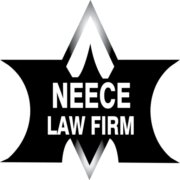Best Real Estate Due Diligence Lawyers in North Carolina
Share your needs with us, get contacted by law firms.
Free. Takes 2 min.
Free Guide to Hiring a Real Estate Lawyer
Or refine your search by selecting a city:
List of the best lawyers in North Carolina, United States
United States Real Estate Due Diligence Legal Questions answered by Lawyers
Browse our 1 legal question about Real Estate Due Diligence in United States and read the lawyer answers, or ask your own questions for free.
- What is owner of condo units obligation as far as damage to the condo below their unit.
- The unit above my condo is managed by a Property Management company, and it was rented. During the time it was rented, there were water leaks that damaged my ceilings, and the Management Company. refuses to fix the ceiling so that it matches the rest of the ceiling. Even though... Read more →
-
Lawyer answer by Horus Legal Sulotion
Thank you for sharing the details of your situation. Based on the circumstances you described, you may have grounds to escalate the matter legally. You can file a case to request the appointment of a government engineer from Dubai Municipality...
Read full answer
About Real Estate Due Diligence Law in North Carolina, United States
Real estate due diligence in North Carolina is a crucial process for buyers and sellers involved in residential or commercial property transactions. Due diligence refers to the investigation and evaluation period during which a prospective buyer reviews the property’s condition, legal status, title, zoning, and financial aspects before completing the purchase. North Carolina law provides a specific “due diligence period” in most real estate contracts, allowing buyers the right to inspect the property, secure financing, and negotiate repairs or terms. Understanding the legal and practical aspects of due diligence is essential for protecting your investments and avoiding costly mistakes.
Why You May Need a Lawyer
Real estate transactions involve significant legal, financial, and personal interests. Here are some situations where seeking legal help for real estate due diligence in North Carolina becomes especially important:
- You are unsure about the terms or contingencies in the purchase contract
- There are disputes over property boundaries, easements, or title defects
- The property has outstanding liens or encumbrances
- You need assistance interpreting inspection or survey reports
- Concerns arise with homeowner associations, covenants, or zoning laws
- You are a first-time homebuyer unfamiliar with North Carolina procedures
- You are purchasing commercial property with complex leasing or regulatory issues
- There are negotiations regarding repairs, credits, or price adjustments
A North Carolina real estate lawyer can guide you through local customs, help protect your rights, and review or create documents to avoid problems after closing.
Local Laws Overview
North Carolina law offers unique protections and procedures covering real estate transactions. Below are some key aspects relevant to due diligence:
- Due Diligence Fee: Buyers in North Carolina often pay a “due diligence fee” directly to the seller for the exclusive right to conduct inspections and cancel the contract for any reason before the due diligence period expires. This fee is non-refundable unless the seller breaches the contract, but it is typically credited at closing.
- Earnest Money Deposit: Separate from the due diligence fee, this deposit shows serious intent to buy and is held in escrow. It may be refunded under certain conditions.
- Due Diligence Period: The contract specifies a deadline for all inspections, appraisals, loan approvals, and negotiations. Failing to cancel before this deadline usually results in forfeiting the due diligence fee.
- Disclosure Requirements: Sellers are legally required to provide a Residential Property and Owners’ Association Disclosure Statement and, in some cases, a Mineral and Oil and Gas Rights Disclosure. However, many properties are sold “as is,” making diligence and inspections even more important.
- Title and Survey: North Carolina is an “attorney state,” meaning lawyers play a central role in certifying title and supervising closings. Title searches, surveys, and title insurance are essential parts of diligence.
- Inspections: Buyers can (and should) order inspections for structural, pest, environmental, and other issues. Negotiations for repairs or credits occur during the due diligence period.
Understanding these processes and deadlines is vital for a successful and legally sound real estate transaction in North Carolina.
Frequently Asked Questions
What exactly is the due diligence period in North Carolina real estate transactions?
The due diligence period is a negotiated timeframe in which the buyer may investigate the property, conduct inspections, arrange financing, and cancel the contract for any reason without penalty beyond losing the due diligence fee.
Can I get the due diligence fee back if I cancel the contract?
No, the due diligence fee is generally non-refundable unless the seller is at fault or breaches the contract. However, the earnest money deposit may be refunded under certain circumstances.
Are home inspections mandatory during due diligence?
No, inspections are not legally required, but they are strongly recommended and usually performed during the due diligence period to uncover hidden issues.
What if an issue is found during due diligence?
You may renegotiate the contract with the seller to address repairs or price, accept the property as is, or cancel the contract before the due diligence period ends.
Who is responsible for ordering and paying for inspections?
The buyer is typically responsible for coordinating and paying for inspections, surveys, and other due diligence activities.
Do I need a lawyer to buy or sell property in North Carolina?
Yes, North Carolina law requires a licensed attorney to oversee the closing, certify title, and prepare or review closing documents.
What happens if I miss the due diligence deadline?
If you do not terminate the contract by the end of the due diligence period, you may forfeit your earnest money deposit if you later back out for reasons not covered by other contract contingencies.
What disclosures must a seller provide in North Carolina?
Sellers must provide a Residential Property and Owners’ Association Disclosure Statement and a Mineral and Oil and Gas Rights Disclosure for most residential properties, unless the buyer waives these disclosures in writing.
How is the title search different from a property survey?
A title search reviews legal ownership and any recorded claims or encumbrances, while a survey physically maps property boundaries and identifies encroachments or easements.
Can I buy property “as-is” and still protect myself?
Yes. Even with “as-is” sales, buyers should perform thorough due diligence, get inspections, and consult a lawyer to understand risks and options before closing.
Additional Resources
The following resources can help you understand and navigate real estate due diligence in North Carolina:
- North Carolina Real Estate Commission - Provides consumer guidance about real estate transactions, contracts, and disclosures
- North Carolina State Bar - Offers information on finding qualified real estate attorneys
- Local county Register of Deeds office - Records and provides access to property records, deeds, and liens
- North Carolina Department of Insurance - Information about title insurance and homeowner’s insurance requirements
- Local real estate agents and brokers - Can provide neighborhood and market insights
Next Steps
If you are considering buying or selling real estate in North Carolina, start by reviewing contract terms carefully and identifying your due diligence timeline. Schedule necessary inspections, surveys, and title searches early in the due diligence period. Engage a qualified local real estate attorney to review documents, advise on risks, and represent your interests throughout the transaction. For more help, contact the North Carolina Real Estate Commission or the State Bar for lawyer referral services. Being proactive and thorough during the due diligence process is the best way to protect yourself and ensure a smooth closing.
Lawzana helps you find the best lawyers and law firms in North Carolina through a curated and pre-screened list of qualified legal professionals. Our platform offers rankings and detailed profiles of attorneys and law firms, allowing you to compare based on practice areas, including Real Estate Due Diligence, experience, and client feedback.
Each profile includes a description of the firm's areas of practice, client reviews, team members and partners, year of establishment, spoken languages, office locations, contact information, social media presence, and any published articles or resources. Most firms on our platform speak English and are experienced in both local and international legal matters.
Get a quote from top-rated law firms in North Carolina, United States — quickly, securely, and without unnecessary hassle.
Disclaimer:
The information provided on this page is for general informational purposes only and does not constitute legal advice. While we strive to ensure the accuracy and relevance of the content, legal information may change over time, and interpretations of the law can vary. You should always consult with a qualified legal professional for advice specific to your situation.
We disclaim all liability for actions taken or not taken based on the content of this page. If you believe any information is incorrect or outdated, please contact us, and we will review and update it where appropriate.
Browse real estate due diligence law firms by city in North Carolina
Refine your search by selecting a city.













